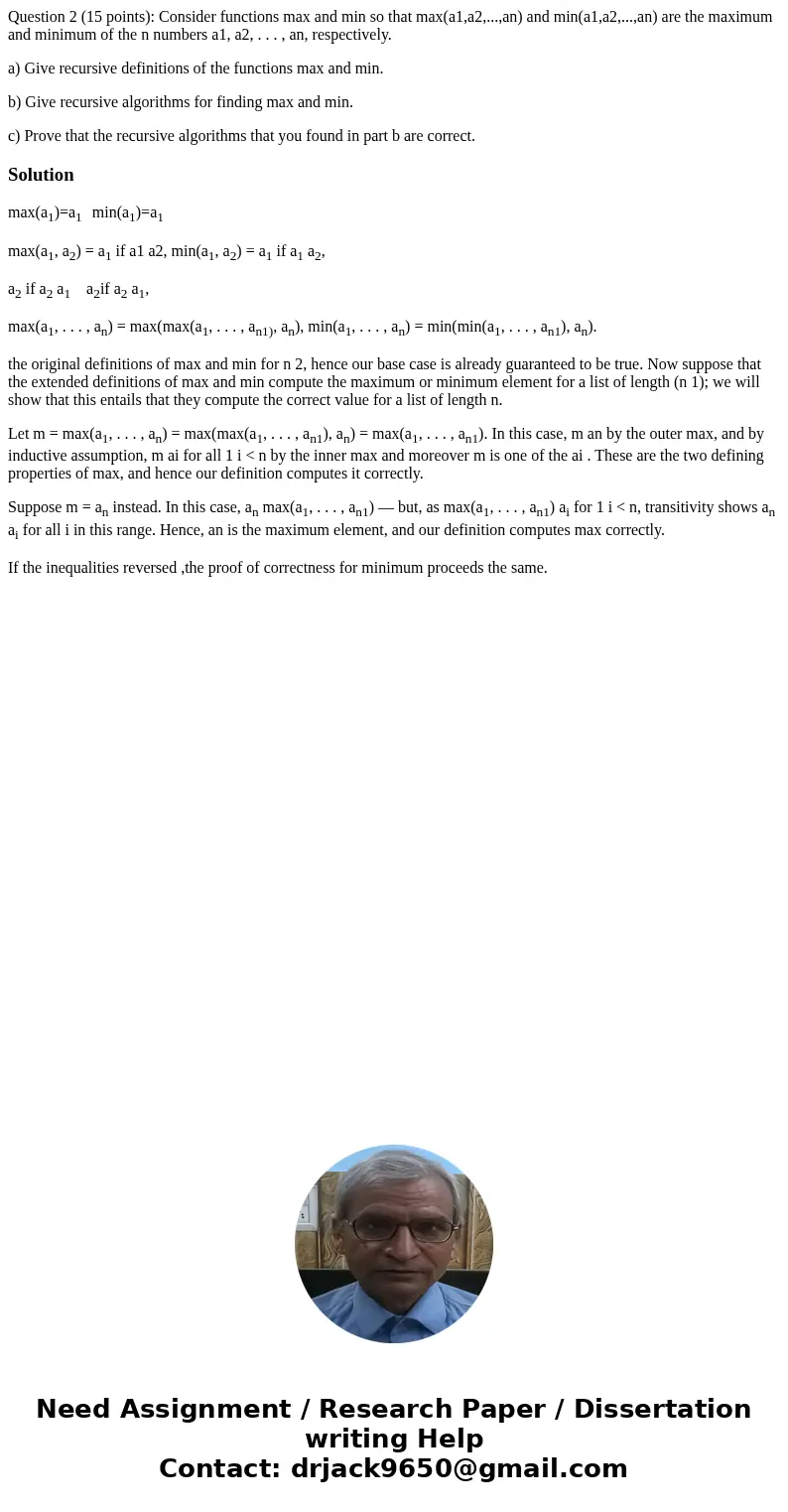Question 2 15 points Consider functions max and min so that
Question 2 (15 points): Consider functions max and min so that max(a1,a2,...,an) and min(a1,a2,...,an) are the maximum and minimum of the n numbers a1, a2, . . . , an, respectively.
a) Give recursive definitions of the functions max and min.
b) Give recursive algorithms for finding max and min.
c) Prove that the recursive algorithms that you found in part b are correct.
Solution
max(a1)=a1 min(a1)=a1
max(a1, a2) = a1 if a1 a2, min(a1, a2) = a1 if a1 a2,
a2 if a2 a1 a2if a2 a1,
max(a1, . . . , an) = max(max(a1, . . . , an1), an), min(a1, . . . , an) = min(min(a1, . . . , an1), an).
the original definitions of max and min for n 2, hence our base case is already guaranteed to be true. Now suppose that the extended definitions of max and min compute the maximum or minimum element for a list of length (n 1); we will show that this entails that they compute the correct value for a list of length n.
Let m = max(a1, . . . , an) = max(max(a1, . . . , an1), an) = max(a1, . . . , an1). In this case, m an by the outer max, and by inductive assumption, m ai for all 1 i < n by the inner max and moreover m is one of the ai . These are the two defining properties of max, and hence our definition computes it correctly.
Suppose m = an instead. In this case, an max(a1, . . . , an1) — but, as max(a1, . . . , an1) ai for 1 i < n, transitivity shows an ai for all i in this range. Hence, an is the maximum element, and our definition computes max correctly.
If the inequalities reversed ,the proof of correctness for minimum proceeds the same.

 Homework Sourse
Homework Sourse